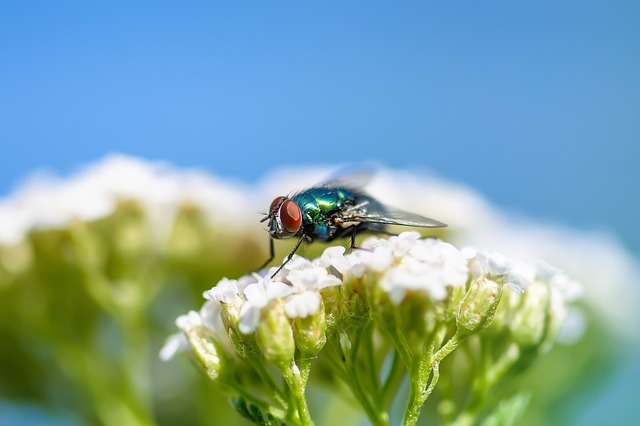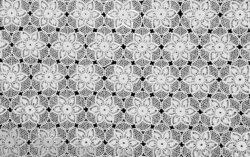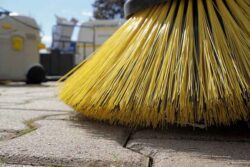
Creating a bug-free home without harming the environment is not only possible but also essential for a healthier living space. Keeping your home bug-free doesn’t have to mean using harsh chemicals. We’ve got a guide filled with easy ways to kick those pesky pests out using eco-friendly methods. From simple tricks you can do yourself to professional services that care for the environment, we’ll cover everything you need to know about having a bug-free and planet-friendly home.
If you have ever wondered how to keep bugs out of your house without hurting the environment, look no further! In this guide, we are going to break down natural solutions for a bug-free home that work well and are safe for the environment, whether you prefer do-it-yourself projects or professional eco-friendly services. We have all the little details you need to create a home that is pest-free and environmentally conscious. Let us break down those bugs in your space the green way!
See also our post on 9 Natural Ways to Clean and Freshen Your Home’s Air: A Breath of Fresh Living
How to Prevent Pests
Proper Waste Management
Keep your home tidy and eliminate potential bug habitats by managing waste effectively. Regularly dispose of garbage, and ensure bins are tightly sealed to prevent insect infestations.
Seal Entry Points
Thoroughly inspect your home for gaps and cracks that pests could use as entry points. Seal these openings with caulk or weatherstripping to prevent bugs from making themselves at home.
Maintain a Clean Kitchen
A clean kitchen is a bug-free kitchen. Wipe down surfaces, promptly clean up spills, and store food in airtight containers to eliminate attractions for pests like ants and cockroaches.
Proper Food Storage
Store food properly to discourage pests from making a feast of your pantry. Use sealed containers for dry goods, and keep fruits and vegetables refrigerated to deter fruit flies.
Fix Leaks
Fix any leaks promptly to eliminate standing water, which attracts pests like mosquitoes and cockroaches. Regularly check for and repair plumbing issues to maintain a dry environment.
Natural Repellents
Essential Oils
Harness the power of essential oils as natural bug repellents. Citrus oils, peppermint, and tea tree oil can be mixed with water to create a DIY spray that wards off various insects.
Diatomaceous Earth
Use food-grade diatomaceous earth as a non-toxic powder to eliminate pests like ants, fleas, and bed bugs. Sprinkle it in areas where bugs are likely to traverse.
Neem Oil
Neem oil, derived from the neem tree, is a potent natural pesticide. Dilute it with water and apply it to plants or affected areas to repel and control pests.
Garlic Spray
Create a garlic spray by mixing crushed garlic with water and spraying it around your home. This simple solution is effective against mosquitoes, ants, and other pests.
Borax
Borax, a natural mineral, can be used to deter and eliminate cockroaches. Sprinkle it in areas frequented by these pests, but keep it away from pets and children.
Beneficial Insects for Pest Management
Ladybugs
Introduce ladybugs to your garden or home plants. Ladybugs are natural predators of aphids and other small pests, helping to maintain a healthy balance.
Praying Mantises
Consider attracting praying mantises to your garden. These remarkable insects feed on a variety of pests, acting as a natural form of pest control.
Nematodes
Use beneficial nematodes in your garden to combat soil-dwelling pests. These microscopic organisms are harmless to humans but lethal to insects like grubs.
Birds
Encourage bird visits to your garden by providing bird feeders. Birds, especially insect-eating varieties, help keep pest populations in check.
Frogs and Toads
Create a welcoming environment for frogs and toads, natural predators of insects like mosquitoes. Ponds and damp areas attract these helpful amphibians.
DIY Traps
Apple Cider Vinegar Fruit Fly Trap
Create a fruit fly trap by placing apple cider vinegar in a jar with a few drops of dish soap. The scent attracts fruit flies, and the soap prevents their escape.
Beer Slug Trap
Bury a container filled with beer in your garden to attract and trap slugs. The slugs are lured in by the beer but cannot escape, providing an effective control method.
Sticky Traps
Use sticky traps to catch flying insects like flies and mosquitoes. These traps are non-toxic and can be strategically placed around your home.
DIY Ant Bait
Mix borax with sugar to create a DIY ant bait. Place the mixture in areas frequented by ants. They’ll be attracted to the sugar but will carry the borax back to the colony, eliminating it.
Citrus Peel Cockroach Trap
Place citrus peels near cockroach-prone areas. Cockroaches are repelled by the scent of citrus, making this a simple and natural way to deter them.
Professional Eco-Friendly Services
Research Eco-Friendly Pest Control Companies
Look for pest control companies that specialize in eco-friendly methods. These companies often use non-toxic treatments and focus on prevention to minimize environmental impact.
Botanical Pesticides
Ask about botanical pesticides, which are derived from plants and are often less harmful to the environment than traditional chemical pesticides.
Integrated Pest Management (IPM)
Opt for Integrated Pest Management strategies offered by eco-friendly pest control services. IPM combines biological, cultural, and physical methods to control pests, minimizing the need for chemical treatments.
Regular Inspections
Schedule regular pest inspections with an eco-friendly pest control service to catch potential issues early. Early detection allows for the use of less invasive and harmful treatment methods.
Educate Yourself
Take the time to educate yourself on the eco-friendly pest control methods used by professionals. Understanding the processes empowers you to make informed decisions for a greener and bug-free home.
See also our post on 10 Natural Ways to Remove Stubborn Stains from Different Surfaces
Conclusion
An eco-friendly approach to getting rid of bugs in your house is not only feasible, but it is also good for the environment and your health. These all-inclusive strategies include everything from natural repellents and prevention tips to beneficial insects and natural repellents. Whether you choose to tackle the problem yourself or hire a professional, the end result is always the same: a happier, healthier, and bug-free home.







